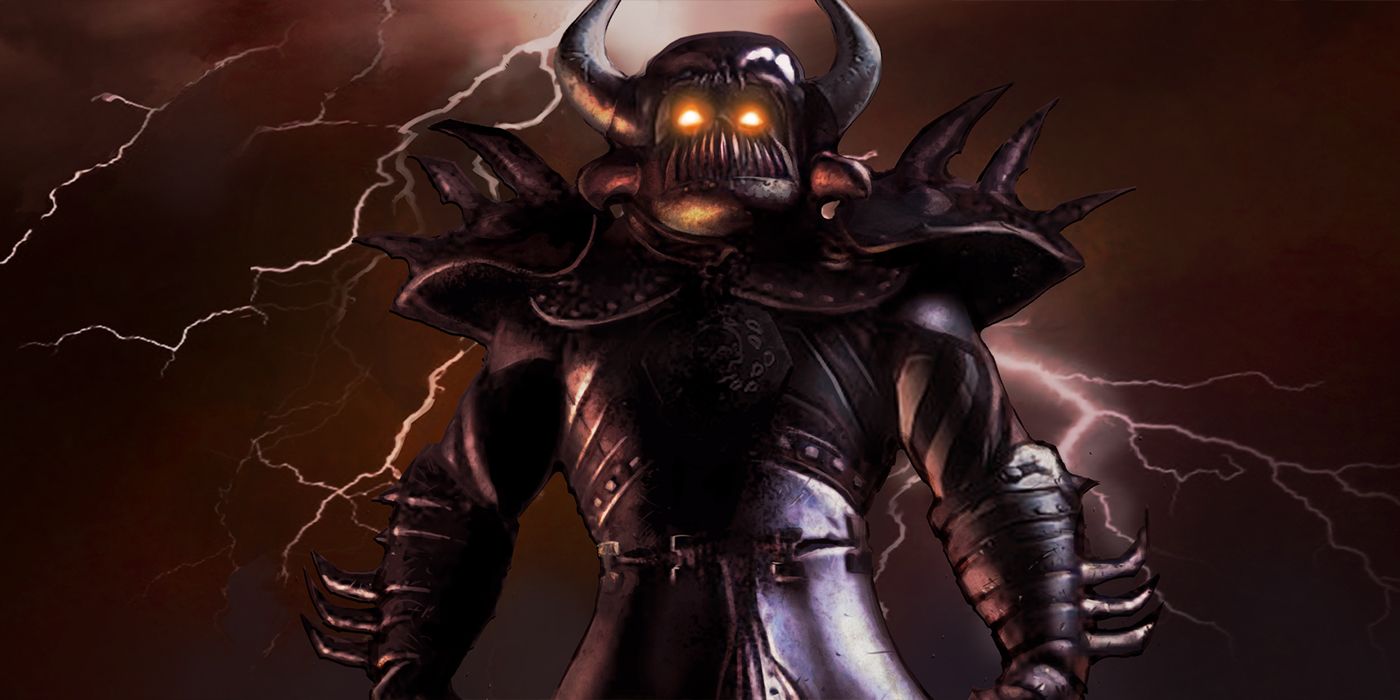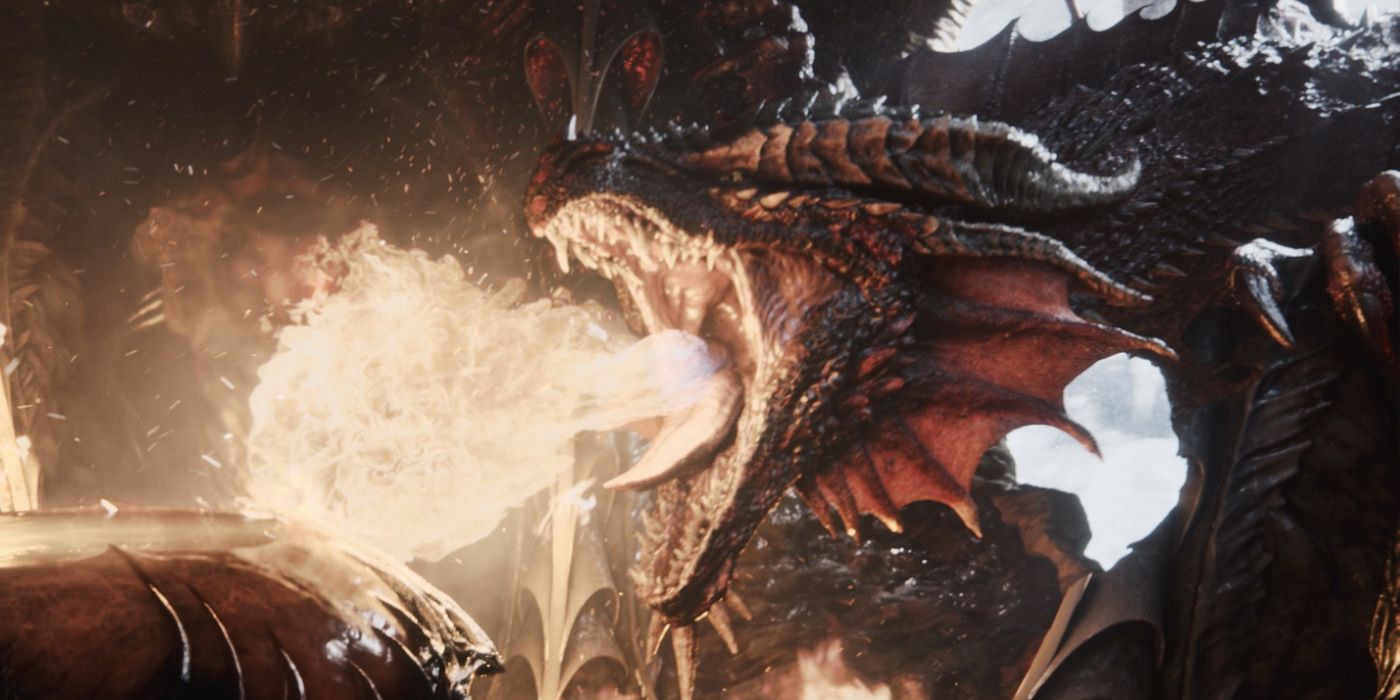Baldur’s Gate 3: The History of Baldur’s Gate | Game Rant

Larian Studios is still in the early stages of releasing details about its upcoming RPG Baldur's Gate 3, but that doesn't mean there's nothing significant to know about the franchise. Larian, after all, isn't the only source of information, and to understand the places that Baldur's Gate 3 might be going, it's important to take a look where its previous Baldur's Gate installments have been--and the history of Baldur's Gate, both the city and franchise.
As those who played the early Baldur's Gate titles will know, the game uses a classic Dungeons & Dragons setting, Faerun, to serve as the backdrop for the franchise. The first game naturally takes place in the northern city of Baldur's Gate, and in that time, the city garnered a proud reputation as the darkest and most troubled town on the Sword Coast. As designer Adam Lee says, it's “the Gotham [City] to Waterdeep’s Metropolis," and that same tone is expected to carry over into the narrative of Baldur's Gate 3.
First off, it's been clearly established that Baldur's Gate 3 is going to tell its own story; the first Baldur's Gate saga is over, and players won't necessarily need to know it in order to enjoy BG3. However, it's also been established that there absolutely will be connections between the two stories--unsurprising, considering both the fame and success of the original games and the fact that they're both taking place in the same area of Faerun. So, while BG3 is a separate story, it'll almost certainly be influenced by the events that occurred in Baldur's Gate roughly a century prior.
There's really no Baldur's Gate without the Dead Three. That refers to the infamous gods Bhaal, Bane, and Myrkul, all three of whom were evil gods eventually forced to walk the earth as mortals during the Time of Troubles and were subsequently slain. Yet all three of them currently live because they were able to preserve their power in mortal offspring.
That's where the story of Baldur's Gate (the original game released in 1998, that is) comes in: Bhaal, the god of murder, is easily the most important of the Dead Three to the city of Baldur's Gate and its history, considering one of Bhaal's mortal children attempted to destroy it in a bloody war with Amn only to be stopped by yet another child of Bhaal. In short, Bhaal's desperation to preserve his own life paved the way for Baldur's Gate's reputation as the darkest, grittiest city on the Sword Coast, one that is no stranger to hard times and unbelievable events.

That gigantic mind flayer vessel depicted in the opening cinematic of BG3? It's probably not the weirdest thing seen around the city in the past decade or so, let alone since the Time of Troubles concluded. After the Iron Crisis and first major Bhaalspawn conflict (aka the events of Baldur's Gate), the city once again encountered trouble as told in the D&D campaign Murder in Baldur's Gate, wherein the god Bhaal was finally resurrected through the murder of the last living Bhaalspawn. Then there's the even longer Baldur's Gate: Descent into Avernus, a Mad Max-esque campaign that takes players from the streets of Baldur's Gate to the pits of the Nine Hells themselves.
All that to say, by the time Baldur's Gate 3 starts, the city is still facing the wake of both Murder in Baldur's Gate and Descent into Avernus, with the scars of Baldur's Gate (1998) still in peoples' memories as well. Whatever the narrative of BG3 has in store for audiences, it should hopefully fit in with the dark and epic tone that accompanied all previous adventures set in the iconic city.
Secondly, there are the actual mechanics and layout of the previous Baldur's Gate games to consider: what made them special, and what Larian need to try and adapt for the new generation of BG games. When it comes down to it, the Baldur's Gate saga is responsible for more than many people likely realize; their success shaped the RPG genre for years to come. Other iconic, genre-defining series like Dragon Age (and Mass Effect, though they're sci-fi rather than fantasy), Pillars of Eternity, and Divinity: Original Sin (made by Larian Studios) all took major cues from Baldur's Gate, and with good reason.
Baldur's Gate was a hit when it released in 1998, and its successor, Baldur's Gate 2: Shadows of Amn, even more so. BG2 improved just about every element of the franchise and is generally considered one of the best RPGs of all time, despite how much times have changed since the year 2000. That's because of all the things BG2 did so unforgettably well: a deep, fleshed-out story, large branching dialogue trees to define the main character even though they were silent, colorful companions who had personalities, quests, and romances to engage with, and choices with meaningful consequences attached.
Sound familiar? BG2 was one of the first RPGs to do all of those things with great skill, and it became the standard going forward. So, needless to say, returning fans of the franchise are looking to BG3 to embrace all of the best things about the old games and--hopefully--improve upon them.

BG2 also had a pretty well-defined "look," one that may be taken into account in BG3's gameplay. Some of the biggest features included an isometric perspective (which it has already been confirmed that BG3 will include, though players aren't restricted to it), an open world with plentiful side-quests and story endings, and extensive character customization including race, gender, class, and abilities. It's looking like Larian does indeed intend to expand character customization options in BG3, which bodes well for the rest of the mechanics that made the Baldur's Gate series great.
Overall, the biggest thing about Baldur's Gate gameplay was the freedom that players were given, even while keeping track of the overarching narrative. If Larian can preserve that feeling and the elements of Baldur's Gate that make it beloved even all these years later while still telling a brand new story adapted for D&D's 5th edition ruleset, then Baldur's Gate 3 will be a true thing of beauty.
Baldur's Gate 3 is in development now for PC and Stadia.

Post a Comment